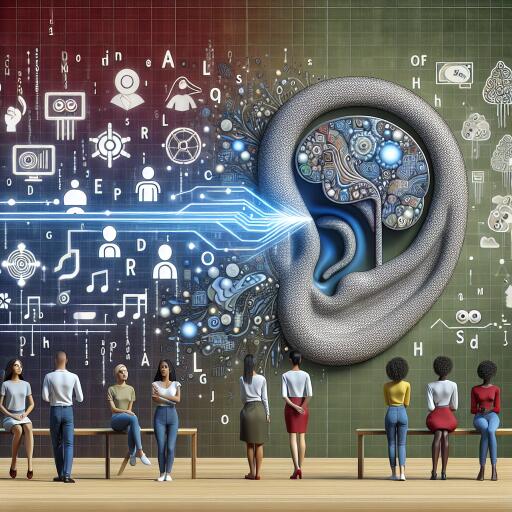Introducing Moshi: The AI Voice Assistant That Understands Emotions
In a world rapidly embracing AI technologies, Kyutai, a French AI company, is pushing the boundaries of what artificial intelligence can accomplish in daily interactions. Their latest innovation, Moshi, stands as a formidable rival to OpenAI’s ChatGPT, aiming to revolutionize the way we perceive and interact with AI chatbots. Moshi is not just any voice assistant; it is an advanced conversational AI that goes beyond text, understanding and responding to the emotion in your voice.
The Evolution of AI Conversations: Beyond Text to Emotional Understanding
Moshi represents a significant leap forward in the field of AI. Unlike conventional voice assistants that often struggle with the nuances of human emotion and accents, Moshi is equipped with the ability to speak in various accents and employs an impressive array of 70 different emotional and speaking styles. This capacity allows for a richer, more human-like interaction, making it feel like you’re speaking with a friend rather than a machine. One of the most groundbreaking features of Moshi is its ability to process two audio streams simultaneously, enabling it to listen and respond in real time, much like a human would in a conversation.
A Behind-the-Scenes Look at Moshi’s Development
Kyutai’s approach to developing Moshi involved an intricate and innovative process. By generating over 100,000 synthetic dialogs using Text-to-Speech (TTS) technology and collaborating with a professional voice actor, the developers have managed to create a voice assistant that can deliver natural, engaging, and emotionally resonant responses. This meticulous effort has culminated in a voice assistant that Kyutai claims “makes it possible for the first time to communicate in a smooth, natural, and expressive way with an AI.”
For those eager to experience this new level of AI interaction, a demo version of Moshi is currently available, offering users the opportunity to engage with the voice assistant for up to five minutes. This demo provides a glimpse into the future of AI conversations, showcasing Moshi’s potential to understand and connect with users on an emotional level.
Open-Source Innovation and Ethical AI Development
In an endeavor to foster innovation and address ethical concerns surrounding AI, Kyutai plans to release Moshi as an open-source project. This move not only demonstrates the company’s commitment to transparency but also opens up a plethora of opportunities for developers and researchers to contribute to and expand upon Moshi’s capabilities. Furthermore, the company is determined to integrate state-of-the-art features into Moshi, including advanced AI audio identification, watermarking, and signature tracking systems. These features are aimed at ensuring accountability and traceability of AI-generated audio, addressing some of the most pressing concerns in the realm of AI ethics and security.
Setting a New Benchmark for AI Voice Assistants
With its advanced features and the unique ability to understand human emotions, Moshi is set to redefine what’s possible in AI voice interaction. Kyutai’s ambitious project goes beyond mere functionality, seeking to create a voice assistant that offers a truly lifelike and emotionally engaging experience. As Moshi continues to evolve, it may well set a new standard for how we interact with AI, transforming our conversations with technology into something more akin to speaking with another human being. In an age where AI is becoming an integral part of our lives, Moshi stands out as a beacon of innovation, pushing the envelope of what artificial intelligence can achieve in understanding and responding to the complexity of human emotions.
In conclusion, as we step into the future with AI technologies like Moshi, the potential for deeper, more meaningful interactions with our devices becomes increasingly apparent. Kyutai’s vision for Moshi as an empathetic, emotionally aware voice assistant could very well pave the way for a new era of human-AI relationship, where our conversations with technology are as rich and nuanced as those we have with each other. The journey of Moshi from a groundbreaking idea to a transformative reality is just beginning, and its impact on the future of AI and human interaction is eagerly anticipated.









